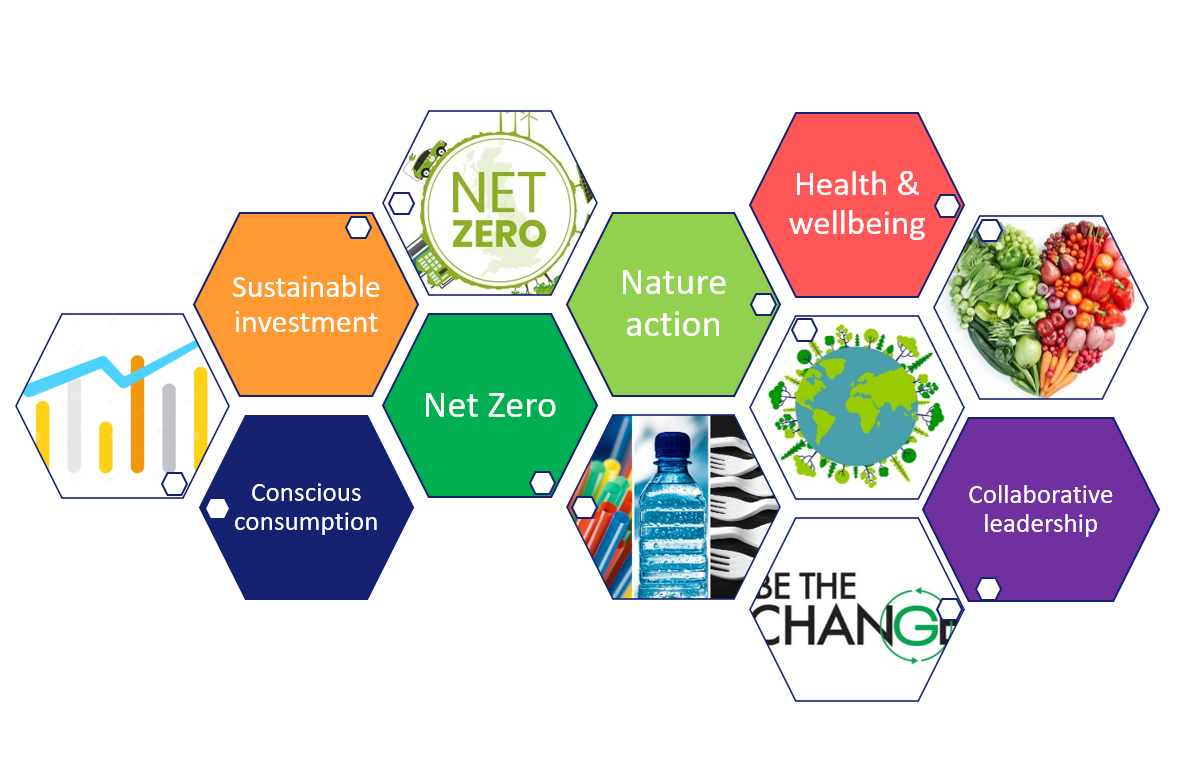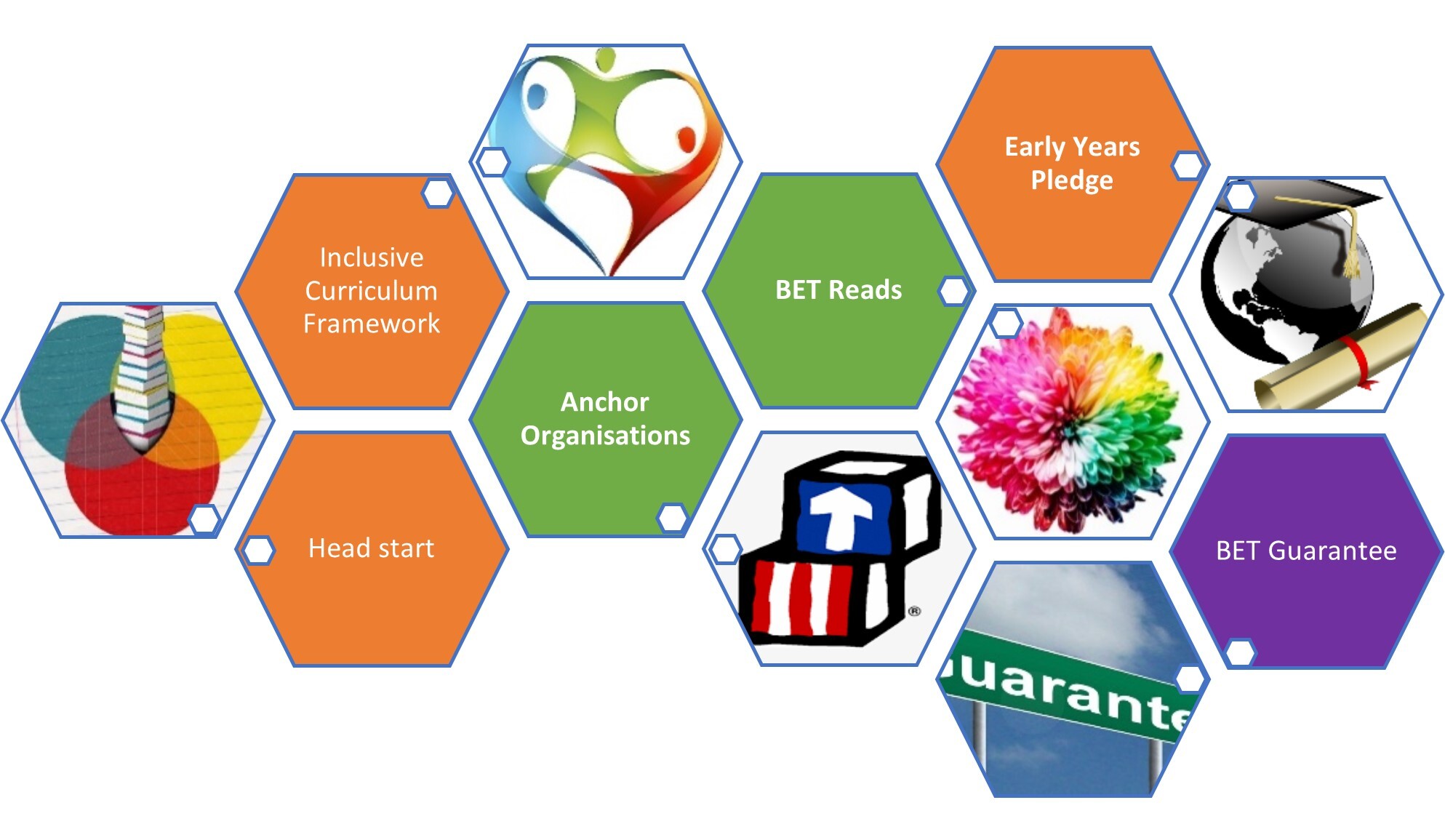Environmental, Social & Governance



Bourne Education Trust’s primary focus is and will always be the education of our young people, but we are also a £100 million business responsible for 1700 colleagues, 24 sites and 75 acres of land. Environmental, social and governance concerns have become a strategic area of focus for companies globally and now form part of our governance and regulatory framework.
We have identified four core aspects of our work in this area:
1. Ensuring we are a force for good in terms of our environment. This includes our decision-making around capital projects, our use of green spaces and our curriculum coverage. We need to respond to the climate crisis by working towards a lower-carbon infrastructure – ensuring a just transition that does not leave any of our schools behind. At the same time, we must reduce other forms of environmental harm and foster more sustainable practices in our schools. This work includes ensuring we have sustainable leadership and governance across the Trust.
2. Developing a clear universal strategy around social justice which is based on action and impact. This is divided into specific commitments to promoting reading, careers, early years, community partnerships and a fully inclusive curriculum
3. Ensuring all decision-making is underpinned by equality, diversity and inclusion and that our curriculum and environments reflect the communities we serve. Our schools play a critical part in driving higher standards of health, welfare and human rights.
4. Committing to the best possible offer for young people with special educational needs by developing and training our staff, reviewing our curriculum pathways and working closely with external agencies,
Our staff are a precious resource and want to work for an ethical business. By getting our governance right we can continue to ensure that the most talented people want to work for us.
These are significant, society-wide challenges, and we believe that by focussing on our environmental, social and governance obligations we can play our part. It is not just the right thing to do, it is also the best way to achieve long-term sustainable returns.
You can read more about the Trust's priorities by expanding the sections on sustainability, equality, diversity and inclusion, social justice and SEND below:
Sustainability
Climate change is at the forefront of environmental concerns: we must improve our sustainability not only to reduce our own costs but to play our part in the moral imperative to reduce carbon emissions.
In response to the government’s pledge to reach net zero by 2030, the Department for Education ('DfE') has issued its own Sustainability and Climate Change Strategy. Our intention is to meet or exceed the targets set in the DfE’s Sustainability and Climate Change Strategy: we are committed to playing our part in reversing the climate change crisis we face and reducing carbon emissions.
The infographic in this section encapsulates BET’s proposed approach; please read here for more information about our strategies:
Sustainable Leadership Strategy

Equality, diversity and inclusion
EDI has been a major focus for the Trust over the last 18 months. We strive to embed equality, diversity, inclusiveness and belonging into everything that we do, not just to meet our statutory requirements. We pride ourselves on being a welcoming and inclusive organisation with a real commitment to continually raising awareness of equality and diversity matters and minimising discrimination and prejudice.
We need to recognise differences in people and our diversity mix in the Trust, but what we really want to achieve is belonging. We want to create a sense of belonging for all our staff and pupils and make sure that our diversity and inclusion efforts do not end up isolating particular groups. Belonging allows an individual to be their authentic self.
For more information about our strategy for 2022-25 please click on the link below:
The Single Equality, Diversity, Inclusiveness and Belonging Scheme (‘SEDIBS’)
To view our position as an organisation at the end of the 2021-22 academic year against our policy objectives and our improvement priorities going forward in 2022-23 please read our current EDI report using the link below:
Social justice
Social justice and inclusion is central to and at the heart of our ESG obligations. To us this means ensuring our pupils have every single tool required to confidently take their place at the table with peers from different economic, cultural or social backgrounds. We know what works – good quality relationships, high aspirations, a real dedication to literacy, exposure to a range of opportunities and challenging, extensive curricula are all shown to make a difference. However, despite years of commitment to this and dedicated national funding, the gap persists. We need to act promptly and decisively.
The infographic in this section encapsulates BET’s proposed approach; please use the link below to read more about the social justice and inclusion work BET is focussing on.
BET's social justice and inclusion work

SEND
Bourne Education Trust is presented with an opportunity, as part of its growth plan and continuing work with its current schools, to support further the effective development of our provision for Special Education Needs and Disabilities (‘SEND’). With growing numbers and a variety of schools joining, both mainstream and specialist, there is now the need to ensure that every teacher is a teacher of SEND, every leader is a leader of SEND and that opportunities enabling provision are coherently mapped and planned to deliver effectively for all. This echoes the Trust’s 'Learning without borders' approach, where sectors and phases learn from one another and hybrid curriculum models allow pupils to move from specialist to mainstream provision. Please read our SEND strategy using the link below which sets out further the context of SEND for the Trust, as well as proposing an approach to provide a universal and effective offer for all.


